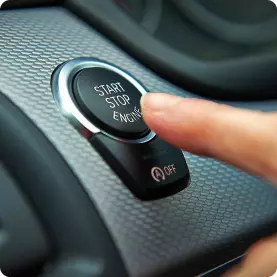Iowa OWI Laws: Your 2025 DUI Charges Guide
Iowa takes driving under the influence of alcohol and/or drugs seriously. Drivers convicted of drunk driving face a tiered penalty system based on prior offenses and blood alcohol concentration (BAC) levels. The state refers to drunk driving as “Operating While Intoxicated” (OWI) rather than DUI or DWI. Under Iowa OWI laws, “operating” is defined broadly; you can be charged even if your vehicle isn’t in motion but you are in control of it while the engine is running.

Getting Started
If you’re arrested for OWI in Iowa, you face both administrative penalties through the Iowa Department of Transportation (IDOT) and criminal charges through the court system. These two processes operate independently but can overlap or run consecutively depending on the circumstances of your DUI in Iowa.
Important Note: While this page gives detailed information about Iowa DUI laws, DUI.org does not offer or provide legal advice. Laws can change, so consult a qualified OWI attorney for personalized guidance.
Definitions to Know
OWI (Operating While Intoxicated)
Iowa’s legal term for operating a vehicle under the influence of alcohol or drugs. You can be charged with OWI if you’re in control of the vehicle and the engine is on.
SR-22
An insurance certificate of proof of financial responsibility required after an OWI conviction in Iowa.
IID (Ignition Interlock Device)
A car breathalyzer installed in a vehicle to prevent it from starting if alcohol is detected on your breath.
Iowa Department of Transportation (IDOT)
The Iowa DOT handles the administrative side of OWI cases, including license revocations, temporary restricted licenses, and monitoring compliance with SR-22 filings and ignition interlock requirements. The DOT manages civil actions concerning your driving privileges, whereas the court system monitors criminal proceedings related to your OWI case.

Each state enforces DUI laws differently
Steps to Take After an OWI Arrest in Iowa
- Hire an Attorney
Legal counsel can help you navigate both administrative IDOT processes and criminal court proceedings.
- Address License Revocation
Your driving privileges will be revoked based on the severity of the offense and your BAC level.
- Request an Administrative Hearing
If disputing a revocation, request a hearing with the IDOT within 10 days of your arrest.
- Apply for a Temporary Restricted License
If eligible, you can apply for limited driving privileges by installing an IID.
- Install an Ignition Interlock
Required for certain offenses and mandatory for high-BAC convictions or repeat OWI offenses.
Explore IIDs - File an SR-22 Form
Provide an insurance certificate of proof of financial responsibility to get your license reinstated, if required.
- Complete Substance Abuse Evaluation
You must be evaluated and complete any recommended treatment programs.
- Pay Fines and Fees
You’ll need to pay court fines plus other fees, such as license reinstatement and state charges.
- Complete OWI Education Program
Mandatory alcohol education courses are required.
- Attend Court Proceedings
Your case will proceed through a criminal court independently from administrative actions.
- Complete Probation
Probation terms may include regular check-ins and abstaining from alcohol or drugs.
- Avoid Further Violations
Whether you’re on probation, using a restricted license, or have just had your license reinstated after an OWI, any new violation can lead to more severe penalties.
OWI Laws in Iowa
What Are the Legal Driving Alcohol Limits in Iowa?
In Iowa, it’s illegal to operate a vehicle if you’re under the influence of alcohol, drugs, or both. The law sets clear blood alcohol concentration (BAC) limits based on your age and license type. Police often use a breathalyzer to quickly check your breath alcohol concentration (BrAC).
| Driver Category | Legal BAC Limit |
| Drivers over 21 | 0.08% or higher |
| Commercial Drivers | 0.04% or higher |
| Drivers under 21 | 0.02% or higher |
Felony vs Misdemeanor OWI in Iowa
In Iowa, OWI offenses can be classified as either misdemeanors or felonies depending on the number of prior convictions. First and second OWI offenses are typically misdemeanors, while third and subsequent offenses are felonies. Felony OWI convictions carry significantly harsher penalties, including longer jail sentences, higher fines, and extended license revocations.
Does Iowa Offer Drunk Driving Diversion Programs?
Iowa may allow you to seek a deferred judgment if you’re facing your first OWI charge. If you qualify, you can complete probation, undergo substance abuse evaluation and treatment, and pay civil penalties instead of receiving a conviction on your record. However, you can only use this option if you have no prior OWI convictions and there are no aggravating circumstances such as accidents or injuries. The court makes the final decision on whether to grant a deferred judgment.
- Intensive supervision
- Mandatory substance abuse treatment
- Regular court appearances
- Frequent random alcohol/drug testing
- Counseling sessions
Successful completion may result in reduced charges or penalties, but eligibility is determined by the court on a case-by-case basis and is not available in all jurisdictions.
Refusing a Chemical Test Under Iowa OWI Law
Iowa applies an implied consent law; when you get behind the wheel in Iowa, you automatically agree to chemical testing if police arrest you for suspected OWI. You can refuse preliminary alcohol screening before arrest but refusing a chemical test after a lawful DUI arrest carries significant administrative and criminal consequences.
| Offense | Penalties for Test Refusal |
| First Refusal | One-year license revocation |
| Second Refusal | Two-year license revocation |
| Refusal after OWI conviction | Two-year license revocation |
Additionally, test refusal eliminates the possibility of reduced charges or penalties that might be available with a borderline BAC test result.
OWI Penalties & Consequences
Penalties for OWI Offenses in Iowa
Penalties for OWIs in Iowa become progressively severe with each conviction:
First Offense
Jail Time: 48 hours to 1 year
Fines: $1,250 (plus surcharge)
License Revocation: 180 days – 1 year
Second Offense
Jail Time: 7 days to 2 years
Fines: $1,875 – $6,250
License Revocation: 1 year
Third or Subsequent (Felony)
Jail Time: 30 days to 5 years
Fines: $3,125 – $9,375
License Revocation: 6 years
Important Note: Actual DUI costs are much higher than the base fines listed due to penalty assessments and fees, often totaling $5,000-$10,000 for a first OWI offense.
Aggravating Factors That Increase Iowa OWI Penalties
In Iowa, these aggravating factors lead to elevated criminal charges, harsher fines, longer jail or prison time, extended license revocations, and additional requirements.
- High BAC: A BAC of 0.15% or higher may result in enhanced penalties.
- Child Passenger(s): Driving while intoxicated with a child in your car can trigger separate child endangerment charges and much harsher penalties, even if the child is not injured.
- Injury: If your OWI causes injury, you could face felony charges, possible prison time, and increased fines.
- Death: An OWI resulting in someone’s death can lead to felony vehicular homicide charges.
- Invalid License: Getting an OWI while driving with a suspended, revoked, or barred license can cause additional penalties and longer license revocations.
- Refusing Chemical Testing: Refusing a breath or blood test after arrest can result in automatic license suspension and may disqualify you from a deferred judgment under Iowa DUI law.
- Eluding Police: If you try to flee from law enforcement while under the influence, you may face extra criminal charges and increased penalties.

Will your OWI conviction land you in jail?
Driving Without a Valid License
Driving while your license is revoked for OWI is a serious offense in Iowa. If caught, you could face immediate arrest, vehicle impoundment, additional fines of up to $1,000, jail time of up to one year, and an extension to your original revocation period. This violation could impact your eligibility for a temporary restricted license and future license reinstatement. The penalties compound with each violation, creating a cycle that becomes increasingly difficult to break.
License Revocation
Who Determines if You Can Continue Driving After an OWI
Both the Iowa DOT and the court system play roles in determining driving privileges after an OWI. IDOT handles administrative license revocations, which occur automatically after failing or refusing a chemical test. The courts can impose additional driving restrictions as part of criminal sentencing. These two processes operate separately but can impact each other.
How Long Will Your License Be Revoked?
Getting your license revoked in Iowa means you are no longer allowed to drive a vehicle, unless you obtain a temporary restricted license during your revocation period. Here’s how long your regular license may be revoked for an OWI in Iowa:
| Offense | Revocation Period |
| First Offense (BAC under 0.15%) | 180 days |
| First Offense (BAC 0.15% or higher) | 1 year |
| Second Offense | 1 year |
| Third or Subsequent Offense | 6 years |
| Test Refusal | 1-2 years |
Steps to Reinstate Your License
- Complete your full revocation period
- Pay $20 reinstatement fee and $200 civil penalty OWI offenses
- Provide proof of financial responsibility (SR-22) from your insurance company
- Complete the required substance abuse evaluation and treatment program
- Install an IID if mandated by court or administrative order
- Pass required knowledge and/or driving tests if applicable
Restoring Your Driving Privileges
After an OWI conviction in Iowa, you may be eligible for restricted driving privileges even before your full license is reinstated. These options help you maintain employment and attend necessary appointments while complying with OWI penalties.
Eligibility for a Temporary Restricted License
Depending on your OWI offense, criminal history, and compliance with court orders, you may qualify for a temporary restricted license (TRL). If it’s your first OWI offense, you can often become eligible right away, or sometimes after a 30-day revocation period, depending on your circumstances. If you have prior OWI convictions, you will need to wait longer before you qualify. Everyone with a TRL must install an ignition interlock device on any vehicle they drive.
How to Apply for a Temporary Restricted License
- Install an IID on all vehicles you will operate.
- Submit SR-22 insurance certificate as proof of financial responsibility
- Complete application form from IDOT
- Provide need-based documentation (e.g., employment verification or medical necessity)
- Pay applicable fees (including $200 civil penalty, $20 license fee, and administrative costs)
Iowa Ignition Interlock Device (IID) Requirements
Iowa law requires anyone seeking a temporary restricted license after an OWI conviction to install an ignition interlock device (IID) on every vehicle they own or drive. If this is your first OWI and your blood alcohol concentration (BAC) was under 0.15%, you must use the IID for the entire license revocation period. If your BAC was 0.15% or higher, or if you have prior OWI convictions, you will need to use the IID for a longer time.
The interlock device prevents your vehicle from starting if alcohol is detected on your breath. It also requires random retests while driving. All test failures are reported to the Iowa DOT. You’re responsible for all installation and monthly calibration costs, which typically range from $130-$300 for installation and about $90 monthly for monitoring.

Selecting the right ignition interlock provider can make a world of difference.
SR-22 Insurance Requirements
After an OWI conviction in Iowa, may be required to maintain an SR-22 certificate for at least two years from the start date of your license revocation. An SR-22 is not insurance itself but a certificate your insurance company files with the Iowa DOT to verify you have the minimum required coverage. Expect significant premium increases after an OWI conviction.
If your SR-22 coverage lapses or is cancelled during the required period, your insurer will notify IDOT, and your driving privileges will be suspended immediately until coverage is reinstated. You cannot remove the SR-22 requirement before the two-year period ends, even with good driving behavior.

Let us help connect you to the right licensed insurance specialist for you.
Substance Abuse Evaluation and Treatment
All OWI drivers in Iowa must complete a substance abuse evaluation by a licensed provider. Based on the evaluation results, you may be required to complete education or treatment programs, which can range from a short course to intensive outpatient or even inpatient treatment.
The evaluation must be completed within 45 days of your OWI conviction. You’re responsible for all costs associated with evaluation and treatment, which typically range from $180-$400 for the evaluation and additional fees for any required programs. Failure to complete these requirements will prevent license reinstatement and could result in additional penalties.

Understand what to expect and how to prepare for a substance abuse evaluation.
FAQs About OWIs in Iowa
How long does an OWI stay on your record in Iowa?
An OWI conviction remains on your criminal and driving record permanently in Iowa.
Can you refuse a breathalyzer test in Iowa?
You can refuse, but Iowa’s implied consent law means automatic license revocation for one year for first refusals.
Will you need an ignition interlock device after an OWI in Iowa?
Yes, if you want driving privileges during your revocation period.
How much does an OWI cost in Iowa?
With fines, legal fees, increased insurance, and other expenses, a first-offense OWI typically costs between $5,000-$12,000.
Can an OWI be expunged in Iowa?
No, OWI convictions are not eligible for expungement.
Sources
- Iowa Legislature. (n.d.). Iowa Code Section 321J.2. Retrieved from http://www.legis.iowa.gov/docs/code/321j.2.pdf
- Iowa Department of Transportation. (n.d.). Suspensions and Revocations. Retrieved from http://iowadot.gov/mvd/driverslicense/Suspensions-and-Revocations
- FindLaw. (n.d.). What Are the Iowa OWI Laws? Retrieved from https://www.findlaw.com/state/iowa-law/what-are-the-iowa-owi-laws.html
- Iowa Department of Transportation. (n.d.). Driver’s License Manual. Retrieved from http://iowadot.gov/mvd/driverslicense/dlmanual/dlmanual.pdf
Get support.
What is next? We can help you through the process. Give us a little information and we can support you through the next steps.
All fields are required.